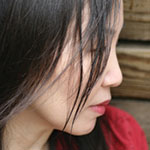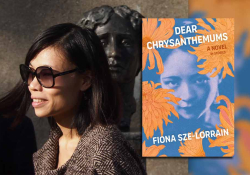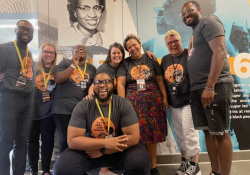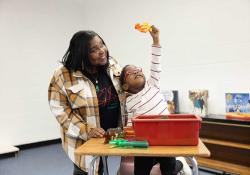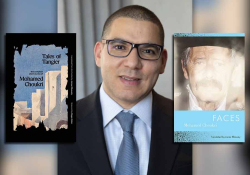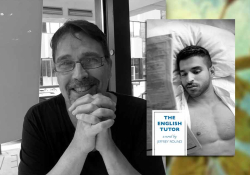“Through Multiculturalism We Become Better Humans”: A Conversation with Vonani Bila
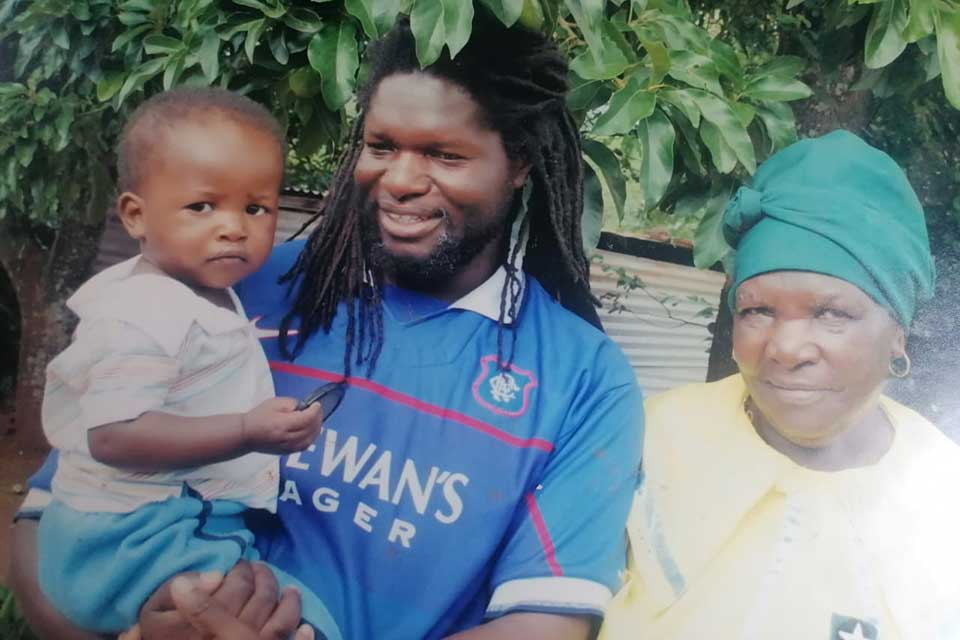
Vonani Bila (b. 1972) grew up in Shirley Village, Limpopo province, South Africa, from where he used to walk fourteen kilometers daily to Lemana High School in Elim. He is a poet, essayist, cultural activist, founding editor of the poetry journal Timbila, publisher of Timbila Books, curator of the Vhembe International Poetry festival, and founder of Timbila Writers’ Village, a rural retreat center for writers. He has been instrumental in promoting marginalized poets and has become an iconic figure among the poets of his generation in South Africa. His poetry continues the tradition of South African resistance poetry of the 1970s and 1980s, blended with postmodernist experiments. He is the author of eight storybooks in English, Northern Sotho, and Xitsonga for newly literate adult readers; two children’s books; co-compiler of a Xitsonga monolingual dictionary with M. M. Marhanele, Tihlùngù ta Rixaka (2016); and is currently a lecturer in English at the University of Limpopo. He holds an MFA in creative writing (cum laude) from Rhodes University and is currently a PhD candidate (creative writing) at Wits University. His poetry books include No Free Sleeping (1998) (with Donald Parenzee and Alan Finlay); In the name of Amandla (2004); Magicstan Fires (2006); Handsome Jita (2007), and Bilakhulu! Longer Poems (2015). Bila has published essays on contemporary South African poetry and the creative arts, and his latest essay, “Probing ‘Place’ as a Catalyst for Poetry,” is featured in the book The Creative Arts: On Practice, Making & Meaning, edited by Michèle Betty and Sally Ann Murray (Dryad Press, 2024).
Ming Di: Hello Vonani. I’m hugely interested in the non-English languages that you write and speak. Where and when did you acquire Xitsonga and Northern Sotho?
Vonani Bila: I’m delighted to reconnect with you, Ming Di, after a decade since we last participated in the traveling poetry festival in South Africa. I write and use most of the indigenous languages of South Africa, especially Xitsonga—my mother tongue and home language—and Northern Sotho/Sepedi, which has almost become a second home language since I started working at the University of Limpopo, an environment that is predominantly Pedi speaking.
My use of these languages is natural and organic. I acquired my home language, Xitsonga, from birth. It is the language that both my mother, Fokisa Maxele, my father, Daniel Bila, and everyone at home—including our extended family—have been using with utmost confidence. I learned not only the words but the deep expressions, idioms, riddles, proverbs, chants, work songs, war songs, and lullabies that are embedded in the Xitsonga language.
My father communicated in Xitsonga through songs and often by strumming the blades of a timbila—a xylophone, a musical instrument similar to a harp. He was a music fanatic. Every night he would impassionedly teach us songs that he sang in his youth on Shirley Farm. My mother related funny and sometimes gory folktales that she had been taught by her mother, Nyanise Maxele. The tales were unimaginable, with memorable characters: often the one-legged dwarfs, cannibals, ogresses, jinns, celibates, and orphans. My siblings and I we always looked forward to listening to these tales together every night.
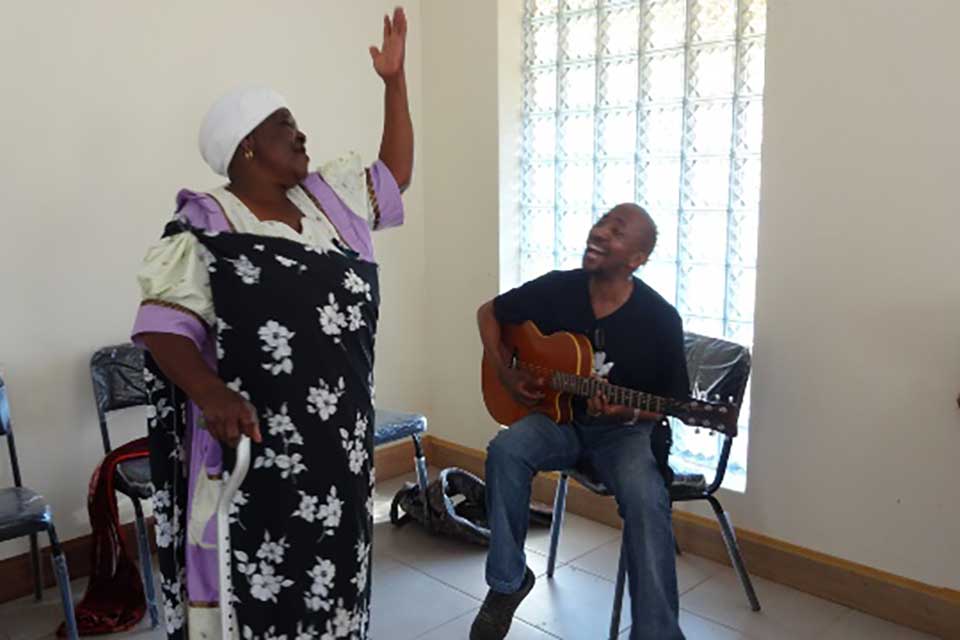
Ming: Yes, I remember your mother. A wonderful storyteller and singer.
Bila: Yes, she is. Besides the folktales, she would teach us the Bila family totems and hers, the Maxele. She would say knowing one’s clan name was essential in creating our identity and cultural self-assertion. “You will not be lost when you travel. You will always meet your relatives. We share. People are like streams, canyons, brooks, and rivers that are all connected, leading to the ocean.” Then she would teach me how to chant the Bila clan:
Hi wena Vonani (You are Vonani)
the son of Daniel,
of Dayimani,
of Jonas,
of Makhayingi,
of Xanjhinghu,
of Ntshovi,
of Ricece.
of Xisilafole xi nga ri na nhonga xi sila hi mandla,
(He who crushes tobacco without a mortar and pestle but with bare hands)
I’m Bilakhulu (Bila the great)
Xihlakala milenge mbilu a yi hlakali
(He whose feet wear away while the heart is intact)
I kondlo lerikulu (The big rat)
Mhlahlandlela maboxandlela (Pathfinder)
We sibongo sihle (He with the most lovely surname)
Wena wa ku heta masimu ya varimi hi ku lava ku hlayisa ndyangu
(He who plundered people’s fields in the quest to feed his family)
Vahloti va ndzi lavalava, va lava ku ndzi dlaya emasin’wini ya vona
(Hunters search hastily, they want to kill me in their fields)
Ndzi hundza, maburuku ya sala ya phamukile
(But I slip through their legs, leaving their pants tattered)
Bila, hosi ya tintswalo (Bila, merciful king)
Wena wa ku rhandza ku xixita (He whose body vibrates when ejaculating)
Bilakhulu (Bila the great)
Mhlahlandlela (The pathfinder)
Through my family language I discovered my origins, the rituals and practices of the Bila people in Mozambique and further—where we came from, presumably in the Nubian region, northeast of Africa in present-day Sudan. Mom emphasized that even Jesus Christ had ancestry, so I needed to embrace mine and honor them by reciting poems that were composed and perfected over a long period. She emphasized that the failure to embrace and celebrate our language would be tantamount to self-hate, which often leads people to adopt willy-nilly a foreign language such as English; to adopt mannerisms, taste, and foreign looks like skin-bleaching in order to be lighter like whites; or to wear foreign hair styles and adopt thoughts, customs, and values that ridicule the locale—the very essence of one’s being.
Years later my father bought an Omega stereo; I got attached to radio stories—listening to episodes of ghost tales with fiery characters, husky and vibrating voices. These stories made sleep horrible, even though I couldn’t ignore the cogent plot structure of most of these radio plays. Every night there I feared the whoosh sound of the ghost walking over our iron-sheet -roof. Often the wind would worsen the situation. But the stories were irresistible. Sometimes our neighbors would also join us, sitting around the stereo and listening to the tormenting play. Back in the day, a radio was a scarce commodity; only the middle class could afford it with relative ease. Otherwise—for the peasants—it was hard to own a radio, let alone a bicycle! We listened to the radio stories every night as a family while drinking tea and enjoying fried peanuts as snacks. We would always remember some characters, their mannerisms and powerful lines from the play. Parents would name their newborn babies after some interesting characters from these plays.
As for Northern Sotho, I encountered the language for the first time in the Zion Christian Church where my father was an ordained priest. The church pastors preferred to present their sermons in indigenous African languages. I admired the practice of the church because African traditions, dance forms, and singing patterns were something I was familiar with. Nothing was white, foreign, or strange in the church. I applaud the founders of the church for their vision to peacefully promote Black selfhood without closing roads and burning tires—I mean without staging a protest! The songs are largely in African languages, predominantly Northern Sotho/ Sepedi. Their signature song, “Mpoho,” is a melodic chant and prayer which incorporates dance. The prophecy in this church is often communicated in indigenous African languages, especially Northern Sotho. So I became accustomed to that language and considered it as mine, since it was the spiritual language.
I also encountered Northern Sotho in early TV dramatic texts like Bophelo ke Semphekgo and Jerusalem. These were great stories at the time, depicting social life (although they always avoided progressive political themes because of censorship). We had no choice [but to watch Northern Sotho programs], because my first and home language, Xitsonga, was absent on national TV. It was really considered a black sheep of South African languages.
Sadly the ethnic groups whose languages were prominent on TV felt like they were better than the minority ethnic groups who were not adequately represented on TV. So another form of discrimination was unintentionally extended by the South African Broadcasting Corporation. TV sport commentators were Zulu or Tswana or Xhosa. Key and influential sport commentators included the veteran Zama Masondo, famous for his Zulu tag line “ladumaaa!” when a goal was scored; Dumile Mateza—in Xhosa and Afrikaans—was amazing; and Baba Mthethwa held the fort in Setswana. These guys, like Mark Gleeson later in English, made language so admirable, fluid, inventive, inviting, captivating, and really gripping.
Ming: You also speak Tshivenda, IsiZulu, Setswana, Sesotho, IsiXhosa, and Afrikaans. How did you acquire these languages and on what occasion do you use them? Are they mutually intelligible? What is the most popular language for poetry in Limpopo?
Bila: The advantage of a multilingual and multicultural society is exposure to different ethnic groups, different languages, and a plethora of cultural practices. I am open-minded and always willing to learn a new language. What I have realized is that these languages are so connected—so is our history as the African people, and as people in general. The failure to appreciate diversity is often driven by self-interest, the quest to dominate others and usurp power without any intention of relinquishing it. The more I learn these languages, the more I am able to meet new friends, understand the nuances of the Other’s culture, participate in intricate conversations, and strengthen the cultural identity of our South Africanness.
And, importantly, the more languages I learn and encounter, the more I am able to riff effortlessly across a range of languages and dialects of poetry, making the poetic images rich and gritty. It is through multiculturalism and the ability to accept and speak the Other’s languages that we become better as people. We cease to be animals that always see the other animals as prey. I am able to read and speak these languages. Surely my active involvement in people’s organizations, social movements, cultural formations like Timbila Poetry Project, and my years as coordinator of the NGO Coalition in Limpopo Province have enabled me to learn these languages so that I could articulate my progressive thoughts with ease and provide better service to my comrades.
The more languages I learn and encounter, the more I am able to riff effortlessly across a range of languages and dialects of poetry, making the poetic images rich and gritty.
I encountered Tshivenda in my village. There was an area known to be populated by Venda-speaking people. We mocked them because the area was too steep, making access to services impossible. There was no proper road to Mantonono. I never wanted to learn Tshivenda, but the sport commentators and presenters on Radio Venda (now Phalaphala FM) ignited my passion for Tshivenda. Venda poets and friends like Zorro Ramovha, Nthambeleni Phalanndwa, and Maano Tuwani encouraged me and introduced me to several collections and anthologies of Tshivenda poetry, and the best I came across was Vhakale vha hone, by Malivhadza Ngwana, and work by W. M. R. Sigwavhulimu. Later I found a Venda writer and wife, Gudani Bila, author of children’s books such as Thili’s Journey and In the Valley of the Rising Sun (in Tshivenda and English).
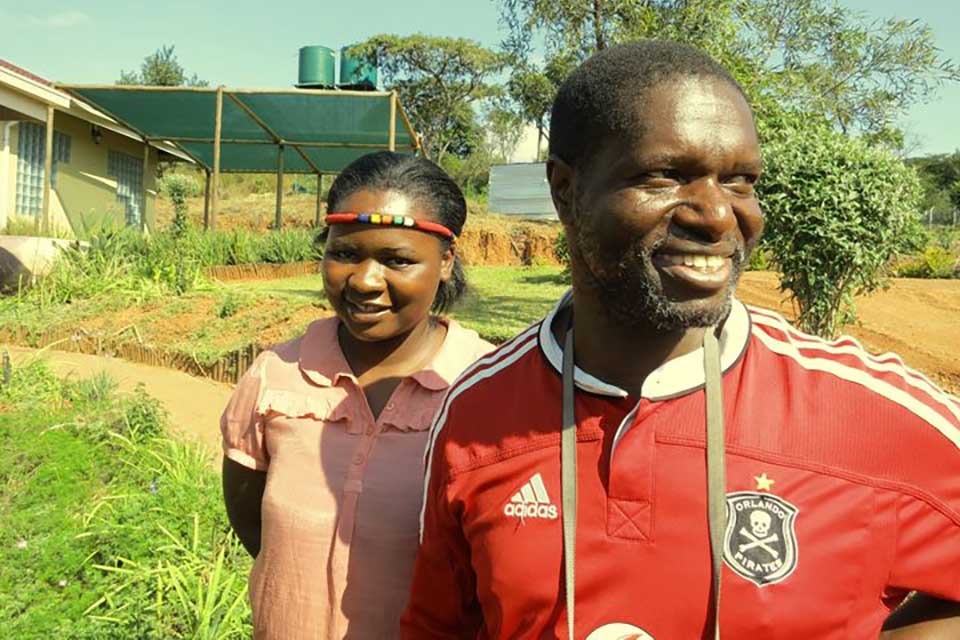
IsiZulu is one of South Africa’s widely spoken languages. Over thirteen million people consider it their first language. In big cities like Johannesburg, it is a language of communication, spoken by every second person you meet in the street. It is easy to learn, but it is equally a language of oppression because oftentimes some Zulu speakers are not keen to learn other languages. It is not easy to avoid isiZulu, because most of the celebrated South African music is in isiZulu.
What is currently saving Xitsonga is the electronic music which is popular in the townships and villages.
In the past, minority ethnic groups like Vatsonga tended to hide their true ethnic identities, especially in Johannesburg. A Mabasa would suddenly rename themselves Mabaso. A Ngobeni would easily switch to Ngubane. The newly acquired Zulu surnames were an attempt to relinquish everything Tsonga in order to be accepted in the urban space. Vatsonga felt dominated by ethnic groups that were aloof and puffed up. The linguistically conquered Vatsonga embraced the old expression, “If you can’t beat them, join them.” This outlook has weakened the position of the Vatsonga and their language, especially in towns and cities. As a result, Xitsonga is only studied in selected schools in the Gauteng province, the big cities of which include Johannesburg and Tshwane (formerly known as Pretoria). What is currently saving Xitsonga is the electronic music that is popular in the townships and villages.
As for Afrikaans, this is the language we were forced to study in school. I believe that all languages deserve to exist. The problem comes when a language is forced down our throats, when our own tongues are facing extinction because of the government’s failure to invest resources to promote such indigenous languages. The youth of 1976 revolted against Afrikaans because it was the language of the oppressor. I am nonetheless attracted to it, especially its poetry. My high school Afrikaans teacher, Mrs. Jacobs, taught us Afrikaans poetry with heightened passion. My favorite Afrikaans poem is “Waar ruwe rotse,” by Christiaan Mauritz van den Heever.
The youth of 1976 revolted against Afrikaans because it was the language of the oppressor. I am nonetheless attracted to it, especially its poetry.
I learned Setswana because of curiosity and my quest to understand cultural history. Writers such as Sabata-mpho Mokae and Duncan Kgatea, whom I consider friends, write in Setswana and are not ashamed of their language. Mokae is a lifelong student of the venerable Sol Tshekisho Plaatje, author of Mhudi, the first novel written in English by a black African. Plaatje also translated several of Shakespeare’s texts into Setswana and wrote newspaper articles in Setswana and English. He was an honorable man, a notable thinker, who eventually became the Secretary of the African National Congress. His ability to pay attention to detail and work in English and the vernacular inspires me a lot. Consequently I write in Xitsonga and English. My major work in Xitsonga so far is the 920-page-long Xitsonga monolingual dictionary, Tihlùngù ta Rixaka, which I compiled with the Xitsonga grammarian Max Marhanele. So my curiosity in learning Setswana has firmly made me appreciate Xitsonga even more.
My Sesotho is not the best, but the popular “bubblegum” South African disco music of the ’80s left an indelible impression on me. One such track is William Mthethwa’s 1987 hit “Mphe Borotho” (Give me some bread). It caused havoc and an itchy rash inside my head as I was growing up as a pantsula dance master. Besides its measured rhythmic beat and synthesizers, the song carried a stern political message (at least for me).
I became more acquainted with IsiXhosa in the streets of Rhini in the Eastern Cape, when I was a Master of Arts (in creative writing) student at Rhodes University. I am equally lucky that my much-admired three poets—who I’m focusing on for my PhD program—write in Xhosa and English. They are Mxolisi Nyezwa, Ayanda Billie, and Mangaliso Buzani—all committed, innovative poets and proud Africanists.
Besides, I like the poetry of one of the key isiXhosa poets and cultural icons, Samuel Edward Krune Mqhayi, who undoubtedly gave hope to his nation. And as an adherent of Black Consciousness philosophy, I follow theorists of the Black Radical Tradition such as Cedric Robinson and Third-Worldism adherents such as Frantz Fanon, Steve Biko, and others who advance thoughts about the elevation of Black voices, critical thinking, resistance against imperialism, sovereignty, and self-affirmation. I believe that to understand one’s history means appreciating the cultural background and language. So people’s traditions, practices, rituals, and neglected languages help me situate Black culture within the broad global cultural context and seek practical ways to ensure the literature I generate is worthy, translatable, relevant, and innovative.
At home I’m never exhausted from speaking Xitsonga with my family, and I’m not ashamed whatsoever. I know of so many so-called educated people who think their indigenous home languages are not sophisticated enough, so as a result they resort to English. I’m not one of them. Everywhere else I use any language that is appropriate to foster communication. In as much as I try to learn other people’s languages, I feel it’s also the responsibility of every one of us to appreciate each other’s languages so that our generation does not bury these spoken and culturally rich languages that are threatened with extinction. In that way, we will nurture and build a truly dynamic multilingual and multicultural society, and ensure our languages are not only for communication but are equally capable of advancing education, commerce, law, and governance.
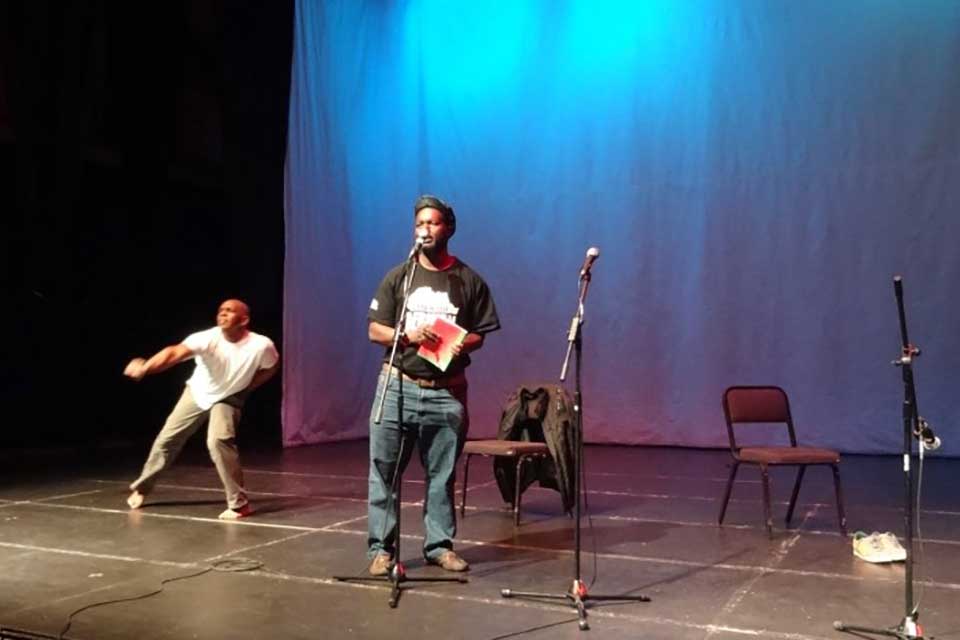
Ming: What is the most popular language for poetry in South Africa?
Bila: The most prominent language for poetry among the youth and “colonized” scholars in South Africa is English. This is unfortunate, given that English is only spoken by an estimated 9.6 percent of the population. English is the fourth most common first language in the country, after isiZulu (23 percent), Xhosa (16 percent), and Afrikaans (14 percent). The influence of mass media, Americanization, hip hop culture, the disregard for African languages and humanities in most universities in favor of mathematical sciences, commerce, and technology, and the government’s lack of will to invest in local publishing and indigenous language development may be responsible for this sad state of affairs.
Black poets who write in English always try to find excuses for not writing in their mother tongues. One common excuse is that there is no readership or audience for work published in native languages, except for the school market. So it is not profitable to invest in languages that are not commercially viable. What a lame excuse!
Nonetheless there are poets, community cultural groups, and reading circles that go about writing and performing poetry in indigenous languages. Literary journals like Kotaz, Botsotso, and Timbila are also steadfast in promoting poetry in native languages.
What I find sobering is when elegiac poems and eulogies are rendered during funerals; and the language is often native and rooted in the culture of the people. It is that critical moment when the griot—usually the aunt—communicates with the dead and wants to be heard clearly as they bid them farewell and seek blessings, good health, wealth, and protection from the other world.
Ming: Were you exposed to bilingual or multilingual poetry as a teenager?
Bila: Back in the days of apartheid, the school system was prohibited from encouraging cross-cultural exchange amongst Black language communities. As a result, it was not easy to read poets from Black ethnic groups other than your own, and the imposed English and Afrikaans. I only encountered other poets who wrote and performed in nonhegemonic European languages much later.
Somehow, despite apartheid, the policy of dividing people along tribal and racial lines couldn’t work properly except at the school level. In Elim, there has always been a Venda linguistic community. Although I have not mastered Tshivenda, I encountered it much earlier.
The other language that excited me was Shona—a language spoken in Zimbabwe. I encountered it through the fast-paced sungura music which we called “xingondo.” It was the best music, especially by groups like Devera Ngwena and Nyami Nyami Sounds. Later when the political crisis worsened in Zimbabwe, we received many Zimbabwean refugees in our villages who made South Africa home. According to the 2022 South African census, there are over one million Zimbabwean nationals in South Africa who comfortably communicate in Shona, isiNdebele, and local languages. In my home village, there are about 1,500 Zimbabweans who eke out a living by doing odd jobs and manual labor.
Shona is an important language because of its role in the liberation struggle—the chimurenga against colonialism and the Ian Smith regime. It bothers me that the school system in South Africa doesn’t provide Shona as a school subject for the many Zimbabwean children whose parents reside in this country. In urban centers, the parents of these children work in the hospitality, building, and mining sectors—helping to build our economy and taking up jobs that locals find less rewarding.
It bothers me that the school system in South Africa doesn’t provide Shona as a school subject for the many Zimbabwean children whose parents reside in this country.
Structurally the Shona language is related to Tshivenda, so learning it is not difficult. On the other hand, liberal South African universities and private schools have an affinity for teaching and promoting European languages such as French, Spanish, and German; and for deliberately neglecting southern African languages. This is pathetic.
Nonetheless, I admire people like Xiujie Ma, a Chinese poet and scholar who did Xhosa undergraduate, honors, Masters, and PhD in record at Rhodes University in South Africa. Xiujie is now a professor at Beijing Foreign Studies University. The Zulu poet Mazisi Kunene galvanized international support for IsiZulu. He taught isiZulu in several universities across the US when it was not fashionable. South Africa needs such people, people who will unashamedly promote their languages beyond the confines of Africa.
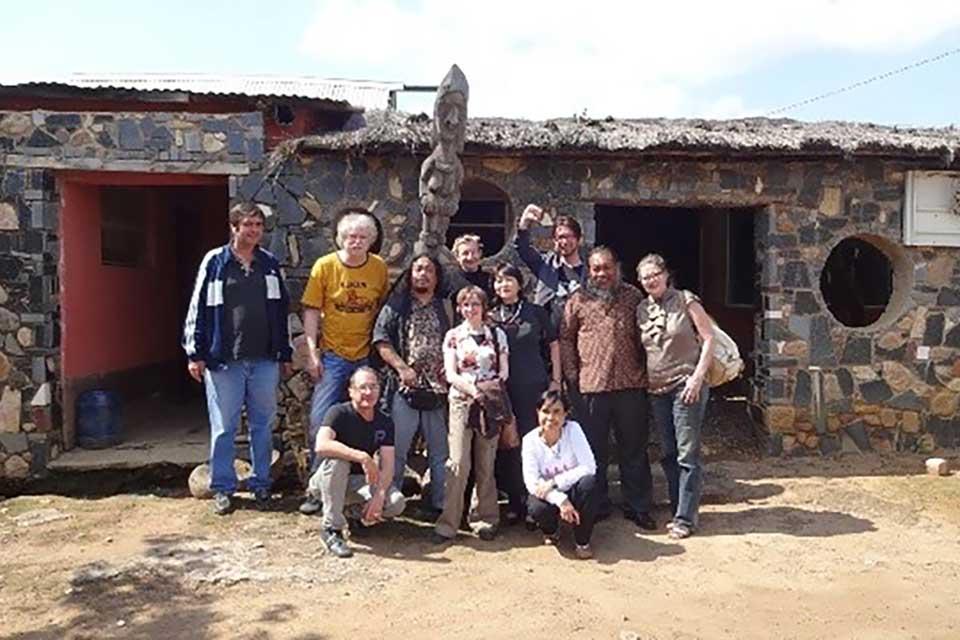
Ming: How has the tradition of oral literature influenced your writing?
Bila: My narrative poetry tends to be sonic and rendered more potent through politically militant performance. I tell stories of everyday social challenges, economic precarity, and political chaos. Through my poetry, I try to consider how poetic elements like intonation, the breathing and pauses, fluidity, melody, and rhythm contribute to the delivery of the poem and its meaning across a diverse and sophisticated audience.
I tell stories of everyday social challenges, economic precarity, and political chaos.
While my mother is an organic intellectual who tells largely folkloric and mythical stories, I write about the social discards and denizens: the sex workers, borehole drillers, beggars, madmen and women, toilet cleaners, morticians, arborists, tree cutters, abattoir workers, taxi drivers. I mirror their precarious existences using a common yet intense language to echo public dissent (though not blindly).
While I read and perform my poems in the public domain, I try very hard to infuse the dramatic, the musical, local dialects, and familiar cultural and social registers to create a dialogue between myself, objects, and the audience, and to lay bare my personal feelings. So the personal and public connectedness is central to my outlook of the world, and that’s what orality endows us with—the avenue to blend public knowledge, social histories, culture, and rituals with individual experiences and encounters. These concrete factors are the realities of my engagement with orality and the written word.
Oral literature has made me aware of my own sounds, smells, fragrances, surroundings. All the five senses of smell, sight, hearing, taste, and touch are engaged. Back in the old days, I recorded the album Dahl Street, Pietersburg, fusing words and conga and guitar rhythmic music to lure both the literate and illiterate to engage with my poetry.
I have also found great joy listening to and reading poets whose work fits both the page and stage. Some examples include Benjamin Zephaniah, who fuses dub with his politically charged and humorous poetry. Linton Kwesi Johnson does the same, incorporating the reggae rhythms and patois to create energetic and exuberant performances. I sense that Allen Ginsberg and the Beat Generation also incorporated jazz improvisation and speech-based poetics in composition, resulting in riveting poetry that is alive on the page (meaning, being empirical and tactile) and on stage (being rhythmic). This oral aspect is my sustenance. It is rhythm that keeps me going.
I have learned to appreciate poetry of The Last Poets and the drum that Don Babatunde played to create a fluid tapestry, articulating the pain of Black people in the US with great dexterity. I’m conscious whenever I compose laments, because I try to make them carry a language that is accessible but inventive and local. I honor poets who have walked the road before me; poets like Ingoapele Madingoane—the Soweto poet laureate—Mzwakhe Mbuli, Don Mattera, Mongane Serote, Sipho Sepamla, and Mafika Gwala. They are regarded as Black Consciousness poets of the ’70s whose poetry defied Western literary standards by amplifying African poetic forms, not mimicking the Anglo-Saxon lyric in a bookish fashion. I also admire stylistically innovative poets like Wopko Jensma, who discovered poetry in everyday speech, found text, photographs, and woodcuts. In Keorapetse Kgositsile, I enjoy the jazz poetic infusions and the Setswana register.
African poetry signifies that the neglect of Black history, orality, and performance are a recurring agony in the literary landscape. This neglect is worsened by poets’ failure to write in their mother tongue—which is tantamount to low self-esteem, obsession with English, and a refusal to delink from tendencies and practices of Western assimilation. My attempt at voicing text through the use of musically inclined poetic devices like rhythm, anaphora, and parallelisms is aimed at memorializing the everyday encounter and experience, affirming my identity and history, and amplifying the rationale for linguistic diversity instead of the ongoing hegemony of the so-called developed and advanced languages, theories, political systems, values, and histories.
Orality has given me relentless courage to notice the role of performance poetry in the course of consciousness-raising, political engagement, social inquiry, and sheer cultural celebration and pride. Barry Feinberg’s poetry anthology Poets to the People, for instance, contains struggle poems that challenge the docility of apartheid, inspiring the audience and readers to discuss political questions on land, inequality, tribalism, racism, violence, and economic exclusion. Most of the poems in the anthology affirm the fact that poetry and song are inextricably intertwined.
Oral forms have helped me to appreciate different poetic forms and genres as complete poems that require treatment as such. Chants, wedding songs, and war songs are equally great poetic forms that require appreciation, like the villanelle, pantoum; the Japanese tanka, haiku, renga; the Jewish psalm; the English ballad, ode, sonnet, etc. Orality has fired me up to work hard at both the oral and written poetic genres. I have found some rich oral poems impossible to effectively translate into English, largely because of the different cultural dynamics, history of the Other society, and the strangeness of the language structure. For instance, a barking dog in English cries woof, woof; in Tsonga, huu, huu! Similarly, for the English speaker, the pig makes the sound oink, oink, while mine says, ncwiii, ncwiii! This obscurity is also found in the use of figurative language. Sometimes an idiomatic expression in Xitsonga like “kuwa ro tshwuka ri na xivungu endzeni,” loosely translated as “a red fig fruit has a worm inside,” may not be well translated into English, except to find the nearest equivalent, “all that glitters is not gold.” Surely English may have several expressions for the same, but the cultural register is different. So this limits the ability of the poet and reader to find the exact and convincing meaning. Nonetheless the meaning of poetry doesn’t always reside in words. It may be inhabited in the coherence of imagery, sound, and rhythm.
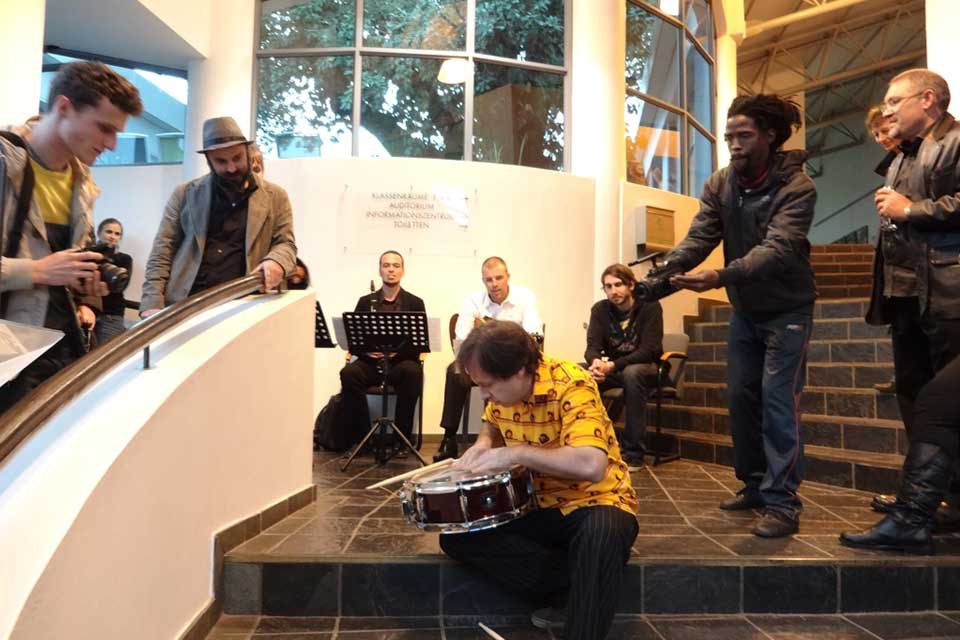
Ming: It was an unforgettable and life-changing experience for me to have the reading tour with you and the other poets in South Africa in 2013 for the What Is Poetry Festival. (I am forever grateful to the organizers and fellow poets.) Before we moved on to the Harare International Festival of Arts in Zimbabwe, we had the honor and pleasure of visiting your village in Limpopo and meeting your mother and your wife there. How is your village now? Can you talk about your projects?
Bila: Absolutely! The South African leg of the What is Poetry festival was memorable, living up to its axiom of “being experimental and aiming to enrich the global cultural landscape by the means of poetical and intellectual exchange and debate in different areas of the world.” I was happy that I was one of the curators, alongside seasoned curators and literary scholars Indra Wussow and Chirikure Chirikure. I recall how the impassioned word-sound poet Samar Gantang collaborated with the queen of Xhosa traditional music, Latozi Madosini Mpahleni; both were not too fluent in English but cruised smoothly when they started to jam, creating passionate music and poetry that left me in awe and stitches. I remember how we traveled on the road from Joburg to my village Elim/Shirley, passing a landscape of express roads, a busy airport that was yet surrounded by shacks, misery, and beggars. When we reached the village, we drove on a zigzagging dusty road fit to be a cattle path. We visited John Baloyi’s newly built art gallery and discovered his gigantic wooden sculptures were being mottled by ants and left exposed to the harsh winds and rain. Baloyi the artist lay dead, buried under the tree, and there was nothing he could do to salvage his labor of love which was left to rot. The villagers were warm and curious as always. The traveling poetry presented me with a glimpse into what had happened in South Africa since democracy. It seemed that the country had made progress beyond the democratic elections. The poets interacted with the people, sharing food, sharing readings and performances, building solidarity.
I was really moved to host you and the poets at Timbila Writers’ Village. It was truly humbling to witness a gathering of diverse poets from all over the world coming together under the umbrella of poetry. In retrospect, it gave me hope that poets are a community—worthy of constantly making and sharing our creativity beyond our private fiefdoms and national borders.
The state of the Writers’ Village continues to provide residencies to writers and researchers working on long and meaningful writing or translation projects. Through the support of Indra Wussow, we have hosted a few writers from Germany, Guy Helminger from Luxembourg, Jesús Sepúlvelda from Oregon/ Chile. We’ve not reached our full potential as yet but remain confident that we will, one day, function optimally.
We’ve hosted the Vhembe International Festival, attracting poets as far afield as Bloemfontein, Shatale, Johannesburg, and Helsinki (Finland). We’ve established a local reading circle with local budding writers mainly drawn from local schools. We’ve spearheaded the necessity of the youth voicing out their problems through the medium of poetry and storytelling. As a result of several writing workshops with high school students, we’ve produced the magazine My Story Your Story, featuring poems, articles, and stories by more than thirty students. We continue to experience financial difficulties to run the facility properly. Despite it being the first writers’ house in Limpopo (and perhaps in South Africa), we struggle to attract funding to support writers in need of residencies.
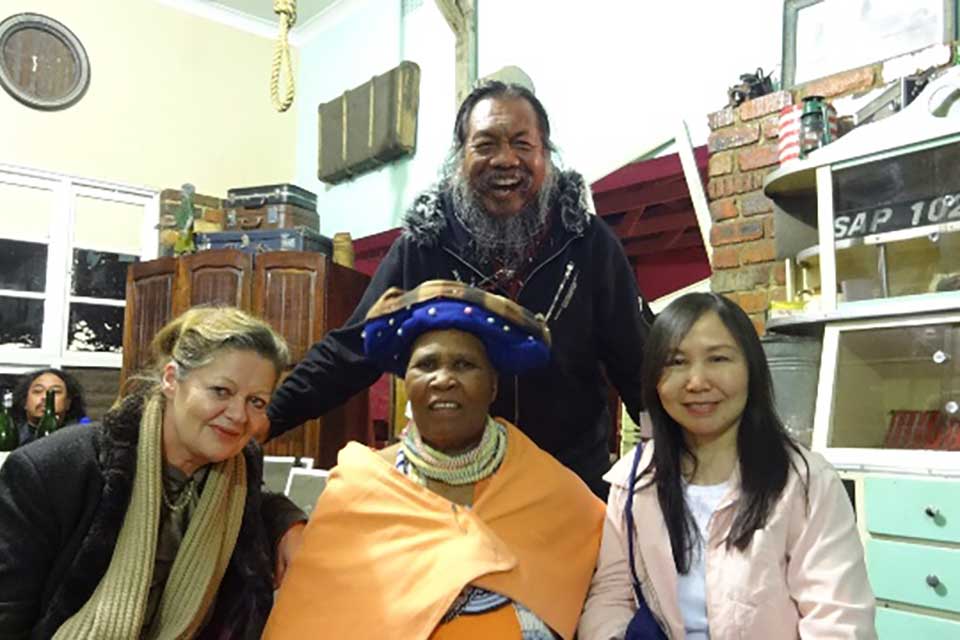
Ming: You write about poverty, injustice, colonialism, and failures of the government. Do you think poetry is powerful enough to awaken the world? Can you talk about the current poetry scene in South Africa? What are the major concerns and what are some of the vital themes?
Bila: I reckon my acute political and social awareness is a result of several influences, notwithstanding the fact that the yearning private voice of self-introspection can’t always be separated from the tormenting public concerns. First, despite the euphoria of freedom and the dawn of a new world that was heralded when Nelson Mandela became the first democratically elected president in 1994, the reality for the majority of South Africans is harsh and brash. It is marked by biting poverty, sky-rocketing unemployment, substandard housing, poor access to primary health care, the shocking levels of apathy and death resulting from the uncontrolled HIV/AIDS pandemic, crime, and domestic violence.
I am a victim of violence too. In 2015 I was violated, shot five times at home by two young boys. The injury left me on a wheelchair for three months. I am lucky. I am alive to tell this gruesome story, but I have become paranoid. The prospect of economic freedom remains an illusion. So many poets have written to spark a dialogue about the conditions of the poor, and about the power of poetry as a vehicle toward transformation and social change.
In the context of South Africa, poetry has been a significant voice to mirror people’s social struggles and echo public dissent.
Poets like Amiri Baraka, Claude McKay, June Jordan, and Paul Laurence Dunbar have decried slavery, racism, uneven development. In the context of South Africa, poetry has been a significant voice to mirror people’s social struggles and to echo public dissent. Under apartheid, several poetry books were banned—notably James Mathews and Gladys Thomas’s Cry Rage! and Ingoapele Madingoane’s Africa My beginning. Poets like Mongane Serote, Mzwakhe Mbuli, Dennis Brutus, Jeremy Cronin, Breyten Breytenbach, Dikobe Ben Martins, Hugh Lewin, and several others have served time in detention, partly because the apartheid government was shaken by their fierce poetry of resistance and struggle. Publications like Barry Feinberg’s Poets to the People had immense influence in shaping thoughts about resistance. In the post-apartheid environment, there is no direct censorship—except that critical and anti-establishment poets hardly receive invitations to government-sponsored literary events. So funding and an opportunity to be celebrated in your birth country are unplugged. Sadly the work of these so-called disillusioned poets is not properly studied in schools. It gathers dust in oblivion.
In the post-apartheid environment, there is no direct censorship—except that critical and anti-establishment poets hardly receive invitations to government-sponsored literary events.
I believe social malaise and the continuous dip into economic crisis and uncertainty that characterize postliberation South Africa are being confronted head-on through revolutionary poetry, especially lyrical poetry and narratives on the hard realities of the place. Poets like Lesego Rampolokeng, Angifi Dladla, Uhuru Phalafala, Mpho Ramaano, Sandile Dikeni, Sandile Ngidi, Mbongeni Khumalo, Siza Nkosi, Phillippa yaa de Villiers, Allan Horwitz, Mxolisi Nyezwa, Ayanda Billie, and Makhosazana Xaba, among others, write poems that critique the place and amplify their concrete, lived experiences and observations. Several themes are explored by South African poets, ranging across personal encounters, travel, meditations on place, poetic influences such as past writers and artists, feminist and class concerns, lost values, reflections on the familial, relationships, and identity. It’s a blending of personal and public sensibilities. This is the kind of accessible poetry that utilizes people’s everyday speech or vernacular, unusual but rich images and metaphors, down-to-earth humor, candor, experimentation, and that takes less care about formal restraints. It is poetry that understands that the personal and social circumstances are intertwined, thus shaping the outlook of the writer and reader. It’s poetry in the mold of Linton Kwesi Johnson, Michael Smith, Benjamin Zephania, Binta Breeze, and Keorapetse Kgositsile that is inspired by the sad historical suffering of Black people and the working class in general. It reflects the true realities of the everyday through poems that demand to be heard and read. The lives of social and political discards and denizens such as sex workers, beggars, mad people, refugees, migrants, farm workers, toilet cleaners, street sweepers, hawkers, and drunkards populate my poetry. These gaping cracks serve as a barometer of where we are as a society on our journey toward complete freedom.
Despite the deep socioeconomic crisis that bedevils South Africa, the state of poetry today is in relatively stable health. It’s not in the ICU yet! Of course we don’t have as many literary magazines and online poetry platforms as literarily active and developed nations like Nigeria, France, Sweden, Finland, Belgium, Germany, or the US, or big poetry festivals like the charming and enchanting Medellín and Poetry International Rotterdam, but we have our Poetry Africa in Durban and McGregor Poetry Festival in the Karoo—among a few that have stood the test of time and which draw large audiences. We are thin on grants and residencies to support writers and translators.
Despite the deep socioeconomic crisis that bedevils South Africa, the state of poetry today is in relatively stable health. It’s not in the ICU yet!
What is pleasing is that poetry is everywhere in the public domain. Readings take place in pubs, community centers, libraries, art galleries, public parks, soccer matches, weddings, and funerals. There are creative writing programs that offer poetry at the postgraduate level mostly in the so-called liberal universities, and the quality of these programs is awesome. Some of the current remarkable South African poets like David wa Maahlamela, Sindi Busuku, Napo Masheane, JahRose Jafta, Ayanda Billie, Nondwe Mpuma, Jolyn Phillips, Vangile Gantsho, and Mangaliso Buzani, to name a few, are products of these writing programs. There are a number of exciting new voices that write and perform in all South African languages. Off the top of my head, I think of Nkateko Masinga, Lebo Mashile, Hlengiwe Bila, Enoch Shishenge, Xabiso Vili, Botlhale Boikanyo, Koleka Putuma, Maya Wegerif (Sho Madjozi), and Ntombhi ya Mutsonga.
I have founded the Vhembe International Poetry Festival, whose major focus is indigenous languages. Magazines like Kotaz, Botsotso, New Coin, Calabash, New Contrast, and Timbila are still churning out excellent poetry without prescribing the sort of poetry that should be written. The independent poetry publishers such as Dryad, Timbila, uHlanga, Impepho, Botsotso, Ndzhaka, and Deep South seem to be doing okay despite the limited resources and constrained, shrinking readership, which has been triggered by a plethora of poetry platforms that are available online. Nongovernmental organizations like ANFASA are also running a series of writing workshops and churning out books by new literary voices, mostly in African languages. Many young poets are embarking on self-publishing. Sometimes the quality is good, though not always! Others are running poetry-writing workshops, seminars, teach-ins, and dialogues within their communities, schools, book clubs, and via digital platforms.
The public performance of poetry by the new poets is exciting. It draws from orality and traditions perfected by the previous generation of poets like Ingoapele Madingoane, Rashaka Ratshitanga, Lefifi Tladi, Maisha Maponya, Matsemela Manaka, and others whose performances in the public flourished and were usually accompanied by drumming, horns, trumpets, dance, and wailing flutes. A disturbing sight, however, is career poets who have simply become too accustomed to privileges and the high life. I am not suggesting that poets shouldn’t make a living, no. But what is noticeable and irritating is when everyone who can blurb a rhyme or imitate Maya Angelou or Saul Williams suddenly wears the crown of a poet. These kinds of clowns cheapen the meaning and craft of poetry by setting forth to commercialize everything about poetry without the rigor of editing and feedback from critical readers and listeners. They are often the usual ones who are invited to corporate gala nights and government banquets where nobody listens to poetry, unless the poet dances in their fashionable kangas, dashikis, and long dreadlocks to win the hearts of the audience. Sometimes these clowns yearn to be comedians, crack a joke, hoping to outmatch Trevor Noah! In the final analysis, the craft and meaning of poetry is lost. Such poets lose their critical eye.
In the past three decades of democracy, South Africa has witnessed a surge in writing festivals. Those that come to mind include Abantu Book festival in Soweto, Garden Route Festival of Books, Franschhoek Literary Festival, Jozi Book Fair, Polokwane Literary Fair, and Vhembe International Poetry Festival, among others. We also have the National Writers Association of South Africa, which is trying hard to promote South African writing in all languages. Recently Robert Berold, Dimakatso Sedite, Tinashe Mushakavanhu, and myself have established Thekwane Poetry Resources, an NGO dedicated to archiving poetry while nourishing and supporting poets in the reading, writing, and editing of poetry in all the twenty-plus languages of the Southern African region.
Ming: Thank you very much, Vonani, for sharing so much invaluable information about the poetry scene and indigenous languages in South Africa and about your projects, your family, and your poetry writing.
Bila: My pleasure. Thank you for the reconnection.
May 2024
Editorial note: Two poems by Bila will appear in the November 2024 issue of WLT.
